Intervista a Linna Carter: «Amo raccontare storie uniche e personali, che fanno ridere ma anche pensare». N.b. Questa intervista la puoi leggere sia in italiano che in inglese. You can read this interview in both Italian and English
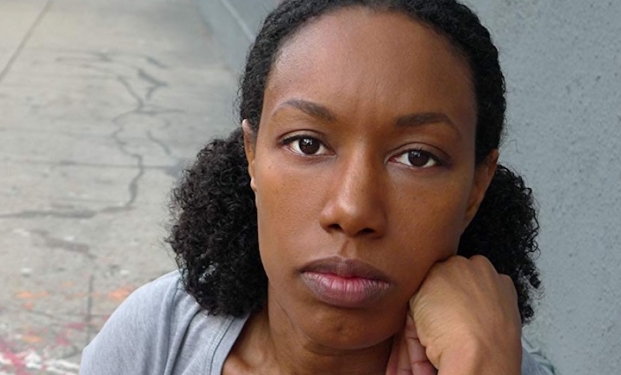
Intervista di Andrea Giostra
Ciao Linna, benvenuta e grazie per la tua disponibilità. Se volessi presentarti ai nostri lettori cosa racconteresti di te quale artista della settima arte?
Ciao! Oh wow… direi che sono un’appassionata di arti visive. Amo raccontare storie uniche e personali, che fanno ridere ma anche pensare, storie empatiche, che ti fanno sentire connessi l'uno con l'altro, e anche qualcosa di ancora più grande. Sono un’attrice qualificata e membro del SAG-AFTRA dell'Unione degli attori di Hollywood. Per molti anni ho fatto spettacoli teatrali, film, pubblicità e TV. Ho scoperto di avere tante storie personali da raccontare e che adesso sono costretta narrare, così ho iniziato a scrivere, produrre e dirigere anche i miei progetti cinematografici.
Qual è stato il percorso artistico che hai fatto e che ti ha condotto dove sei oggi?
Ero molto giovane quando ho detto a mia madre che volevo fare l'attrice. Lei, invece di scoraggiarmi, ha fatto il contrario, incoraggiandomi a guardare vecchi film classici, e mi diceva che se volevo diventare un’attrice, dovevo studiare il lavoro dei grandi attori e dei grandi registi. Ho adorato i vecchi film in bianco e nero: “The Philadelphia Story” “Meet John Doe” “His Girl Friday” “Imitation of Life” “Some Like it Hot” “Cinderfella” and old musicals: “Seven Brides for Seven Brothers”, “On the Town”, “Gentlemen Prefer Blondes”, “Carmen Jones”, “Summer Stock.” Potrei andare avanti all'infinito su quegli attori… o con una triplice minaccia di quei ballerini e cantanti. Ho studiato come ballerina e cantante a partire dal 1 ° o 2 ° grado della scuola americana. Nella mia giovinezza ho fatto balletti, opere teatrali e musical e mi sono preparata con maestri di recitazione privati in tutte le scuole che ho fatto, dalle elementari, alle superiori, all'universitarie e non solo. Ho iniziato a fare pubblicità al liceo e piccoli film già al college. Ogni ruolo che ho fatto mi ha aperto opportunità per il prossimo e per il prossimo ancora. E tutto questo ci porta ad oggi.
Come definiresti il tuo stile recitativo? C’è qualche attrice o attore al quale ti ispiri?
Non so se ho uno stile, sono solo sincera con il personaggio che devo interpretare. Molti sono gli attori che mi ispirano, più di recente: Olivia Colman, Issa Rae, Benicio Del Toro, Lennie James, Yvette Nicole Brown, Elisabeth Moss, Lucy Punch, Robert Duvall, Delroy Lindo, Idris Elba, Ben Foster, Robin Wright, Sandra Oh.
Quali i tuoi registi preferiti e perché?
In questo momento sono un fan delle serie televisive quali: Game of Thrones, This Is Us, Killing Eve, Big Little Lies, Series of Unfortunate Events. I registi: Ava DuVernay, Spike Lee, Shonda Rhimes, Bradley Cooper.
«Ho sempre detto che i due registi che meritano di essere studiati son Charlie Chaplin e Orson Welles che rappresentano i due approcci più diversi di regia. Charlie Chaplin in modo grezzo e semplice, probabilmente non aveva il minimo interesse per la cinematografia. Si limita a schiaffare l’immagine sullo schermo, e basta: è il contenuto dell’inquadratura che importa. Invece Welles, al proprio meglio, è uno degli stilisti più barocchi nello stile tradizionale del racconto filmico.» (Conversazione con Stanley Kubrick su 2001 di Maurice Rapf, 1969). Cosa è più importante dal tuo punto di vista, l'inquadratura di Chaplin o la narrazione di Welles? Come si è evoluto il cinema da allora?
Mmm... quello che mi interessa di più è il punto di vista del regista e come sceglie di raccontare la sua storia; cosa vuole dire... sia Chaplin che Welles erano maestri narratori, ognuno con il proprio e distinto punto di vista, ognuno di loro desiderava stimolare risposte diverse sul proprio pubblico, ciascuno con gli strumenti a sua disposizione che erano essenzialmente diversi. Chaplin ha realizzato i suoi film classici negli anni '20 - '40, il Citizen Kane di Welles era del 1941. Mi sono molto commossa per il film di Bradley Cooper "A Star Is Born", quel film mi ha distrutto. È molto intimo e ti invita in un posto molto privato. Ciò che amo oggi è che la produzione cinematografica e televisiva è molto più accessibile di un tempo. Abbiamo attori / sceneggiatori / registi come Issa Rae, Donald Glover e altri che stanno creando dei prodotti molto interessanti e molto personali, a volte partendo da una piattaforma come YouTube o Vimeo, e riescono a far crescere il loro progetto in qualcosa di più grande. Ci sono così tanti servizi in streaming che adesso hanno bisogno di contenuti originali, c'è tanto lavoro là fuori. È il momento in cui queste storie diverse, queste storie personali, queste storie che non avresti mai visto prima in televisione, stanno trovando posto su piattaforme in streaming come Hulu, Netflix e Amazon. È un momento emozionante.
Perché secondo te oggi il cinema è importanti?
Perché le persone hanno ancora bisogno di sognare, di fuggire, di riflettere e di esplorare le loro vite e le loro convinzioni, e il cinema lo fa in un modo davvero unico. Film e TV educano e divertono più che mai perché tantissime persone che guardano film e prodotti televisivi in diversi luoghi come mai accaduto prima. Le voci degli artisti originali oggi vengono celebrate in un modo che non ho mai visto in passato. Le consolidate formule di film e TV del passato stanno a poco a poco scomparendo. Il pubblico di oggi è più veloce e ha un livello di concentrazione molto più breve che nel passato. Si aspettano molto dai film e dalle serie televisive che vedono, quindi devi catturarli in fretta e devi mantenere il loro interesse.
Ci parli dei tuoi ultimi lavori e dei lavori in corso di realizzazione? A cosa stai lavorando in questo momento?
In questo momento sto lavorando a una serie web con mio marito italiano che esplora le stravaganti avventure culturali e le sfide del nostro recente matrimonio.
Cosa pensi del cinema italiano di oggi? Cosa pensano ad Hollywood delle produzioni del mio Paese?
Non ci sono molti film italiani che arrivano negli Stati Uniti in versione integrale. Penso che gli americani, in generale, siano interessati a vedere film provenienti dall'Italia, ma è molto difficile per le realtà emergenti e per i lungimiranti registi italiani entrare nel nostro mercato, perché noi siamo esposti solo a film con grandi produzioni, con grandi budget e importanti distribuzioni. Io con mio marito ho guardato alcuni film italiani che lui mi ha consigliato, film davvero fantastici quali: "Il Marchese di Grillo", "La Grande Bellezza", "Divorzio all'italiana", "Bellissima", "Cronaca di un amore". Ne ho visto uno, del quale non ricordo il titolo, che parlava di una donna italiana che lavorava in una fabbrica milanese per tantissime ore, per sostenere sé stessa, i suoi figli e l'intera famiglia del marito perché tutti avevano una "disabilità" e non potevano lavorare. Un giorno è crollata sul posto di lavoro ed è stata mandata in montagna per riprendersi. Lì ha trascorso un po' di tempo libero, gomito a gomito con personaggi ricchi e famosi e si è innamorata di un altro uomo. A quel punto si è trovata di fronte ad una scelta: lasciare alle sue spalle la sua vecchia vita o iniziare qualcosa di fresco e nuovo? Mi è piaciuto il personaggio interpretato dall'attrice protagonista, un lavoro davvero bello.
Con quale regista italiano ti piacerebbe lavorare?
Sfortunatamente non ho molta familiarità con gli attuali registi italiani, quando posso cerco di guardare il cinema italiano contemporaneo e mi godo il loro lavoro. In passato ho apprezzato "La vita è bella" di Benigni, i western di Sergio Leone, "Romeo and Juliet" di Zeffirelli e "L'ultimo imperatore" di Bertolucci.
Immagina una convention all’americana, Linna, tenuta in un teatro americano, con qualche migliaio di adolescenti appassionati di cinema. Sei invitata ad aprire il simposio con una tua introduzione di quindici minuti. Cosa diresti a tutti quei ragazzi per appassionarli al mondo della recitazione e della settima arte? Quali secondo te le tre cose più importanti da raccontare loro sulla tua arte?
1. Studia e impara molto.
2. Lascia che l'unicità della tua voce, delle tue esperienze brillino.
3. Non arrenderti. Nulla è facile e nulla succede in una notte sola. Devi starci dentro fino alla fine a quello che vuoi fare, per tutto il tempo che è necessario.
4. Non preoccuparti di ciò che sta facendo qualcun altro. Il tuo percorso è tuo, non paragonarlo a quello degli altri.
5. Sii aperto nel creare e raccontare le tue storie. Non pensare che devi aspettare che qualcun altro che ti dia il lavoro. Crea tu il tuo lavoro.
Linna Carter
https://www.imdb.com/name/nm0141779/
Instagram: @linna_carter
Andrea Giostra
https://andreagiostrafilm.blogspot.it
https://business.facebook.com/AndreaGiostraFilm/
EN:
Linna Carter, a Hollywood film director and actress… «I love telling unique and personal stories that make people laugh and think…»
Interview by Andrea Giostra.
Ciao Linna, welcome and thanks for your availability. If you wanted to introduce yourself to our readers, what would you say about yourself as an artist of the seventh art?
Ciao! Oh wow, I would say that I’m passionate about visual arts. I love telling unique and personal stories that make people laugh and think and empathize and feel connected to one another and also to something greater than themselves. I am a trained actor and member of SAG-AFTRA the Actor’s Union. I’ve done plays, films, commercials, and tv for many years. It turns out I have several personal stories I am compelled to tell, so I started writing, producing and directing my own projects as well.
Which was your training and artistic path that brought you where you came today?
I was very young when I told my mother I wanted to be an actor. And instead of discouraging me, she did the opposite by encouraging me to watch old classic films telling me that if I wanted to be an actor, I needed to study the work of the great actors and great filmmakers. I loved old black and white movies: “The Philadelphia Story” “Meet John Doe” “His Girl Friday” “Imitation of Life” “Some Like it Hot” “Cinderfella” and old musicals: “Seven Brides for Seven Brothers” “On the Town” “Gentlemen Prefer Blondes” “Carmen Jones” “Summer Stock.” I could go on and on about those actors- triple threats as dancers and singers as well. I trained as a ballet dancer and singer starting in 1st or 2nd grade. I did ballets, plays, and musicals in my youth and trained with private acting coaches throughout elementary school, high school, college, and beyond. I started doing commercials in high school and films in college. Each role opened opportunities for the next role and the next. That brings us to today.
How would you define your style of acting? Is there any actress or actor you're inspired by?
I don’t know that I have a style, I just stay truthful to the character. Many actors inspire me, most recently: Olivia Colman, Issa Rae, Benicio Del Toro, Lennie James, Yvette Nicole Brown, Elisabeth Moss, Lucy Punch, Robert Duvall, Delroy Lindo, Idris Elba, Ben Foster, Robin Wright, Sandra Oh.
What are your favourite actors and film directors and why?
Right now, I’m a fan of the shows: Game of Thrones, This Is Us, Killing Eve, Big Little Lies, Series of Unfortunate Events. Directors: Ava DuVernay, Spike Lee, Shonda Rhimes, Bradley Cooper,
“I've always said that the two directors who deserve to be studied are Charlie Chaplin and Orson Welles who represent the two most different approaches of directing. Charlie Chaplin in a raw and simple way, probably had not the slightest interest in cinematography. It simply slaps the image on the screen, and that's it: it's the content of the frame that matters. Instead, Welles, at his best, is one of the most baroque stylists in the traditional style of the filmic tale.” (Conversation with Stanley Kubrick on 2001 by Maurice Rapf, 1969). What is more important from your point of view, the Chaplin framing or the Welles narrative? How has cinema evolved since then?
Mmm, what interests me most is a director’s point of view and how they choose to tell the story; what they want to say. Both Chaplin and Welles were master storytellers, each with their own distinct point of view, each wanting to elicit different responses from their audiences, each with essentially different tools at their disposal. Chaplin was making his classic movies in the 1920s-40s, Welles’ Citizen Kane was 1941. I was really moved by Bradley Cooper’s A Star Is Born, that movie just destroyed me. It was so intimate and invited you in to this very private place. What I love is that film and television production is so much more accessible than it used to be. We have actors/writers/directors like Issa Rae, Donald Glover, and others who are creating this very interesting, very personal content, sometimes starting on a platform like YouTube or Vimeo, and growing that project into something bigger. With so many streaming services now in need of original content, there is so much work out there. And now's the time when these different stories, personal stories, stories that you would never see on network television before, are finding homes on streaming platforms like Hulu, Netflix, and Amazon. It’s an exciting time.
Why do you think cinema is important today?
Because people still need to dream, and escape, and ponder and explore their lives and their beliefs and cinema does that in a very unique way. Movies & TV educate and entertain more than ever before because so many people are watching content in more places than ever before. Original voices are being celebrated in a way I have not seen in the past. The tried and true film & tv formulas are getting left behind. The audiences of today are faster and have shorter attention spans than ever before. They expect more from their films and tv shows, so you’ve got to get them quick and you’ve got to keep them interested.
Can you tell us about your latest work and work in progress? What are you working at right now?
Right now I am working on a webseries with my Italian husband exploring the quirky cultural adventures and challenges of our recent marriage.
What do you think of today's Italian cinema? What does Hollywood think about the productions of my country?
There are not many Italian films that come to the US in wide release. I feel American’s are very open to seeing movies from Italy, but it is very hard to be introduced to the up and coming, forward thinking Italian filmmakers since we are only exposed to the larger films with a large distribution budgets. But I have watched some films with my husband that he recommended which were great: “The Marquis of Grillo” “La Grande Bellezza” “Divorce Italian Style” “Belissimi” “Cronaca di un amore” There was one I don’t remember the name of about an Italian woman working in a factory in Milan very long hours to support herself, her kids, and her husband's entire family because everyone else had a “disability” and couldn’t work. She collapsed at work one day and was sent to the mountains to recuperate where she enjoyed some much needed time off, rubbed elbows with the rich and famous, and fell in love with another man and was faced with a choice to leave her old life behind or start something fresh and new. I enjoyed the character arc of the lead actress, really beautiful work.
With which Italian director would you like to work?
Unfortunately, I’m not too familiar with Italy’s current directors, but I seek out new Italian cinema when I can and enjoy their work. In the past, I have enjoyed Benigni’s “Life is Beautiful,” Sergio Leone’s westerns, Zeffirelli’s “Romeo and Juliet,” and Bertolucci’s “The Last Emperor.”
Linna, imagine a convention held in an American theatre, with a few thousand teenagers passionate about cinema. You are invited to open the symposium with your introduction of fifteen minutes. What would you say to all those guys to get them excited about the world of acting and the seventh art? What do you think are the three most important things to tell them about your art?
1. Study, get that training.
2. Let the uniqueness of your voice, your own experiences shine through.
3. Don’t give up. It’s not easy, it doesn't happen overnight. Be in it for the long haul, however long it takes you.
4. Don’t worry about what anyone else is doing. Your path is your own, don’t compare yours to someone else’s.
5. Be open to creating and telling your own stories. Don’t feel you have to wait for someone else to give you the job. Make your own work.
Linna Carter
https://www.imdb.com/name/nm0141779/
Instagram: @linna_carter
Andrea Giostra
Categorie generali:
Altri articoli che possono interessarti
Per condividere o scaricare questo video: TV Animalista



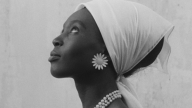




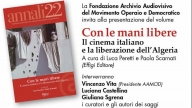



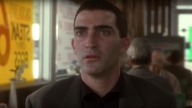
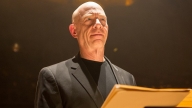
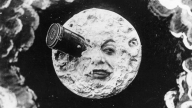




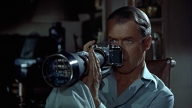


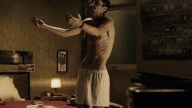
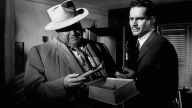




Facebook Comments Box